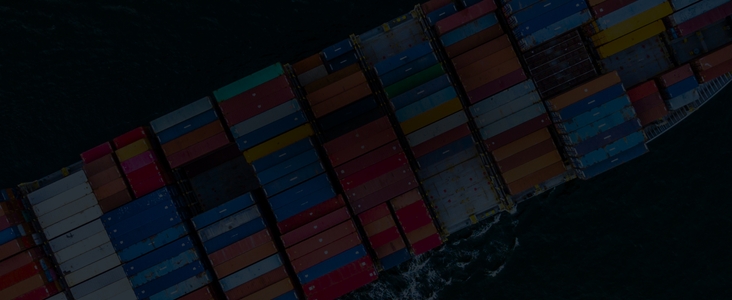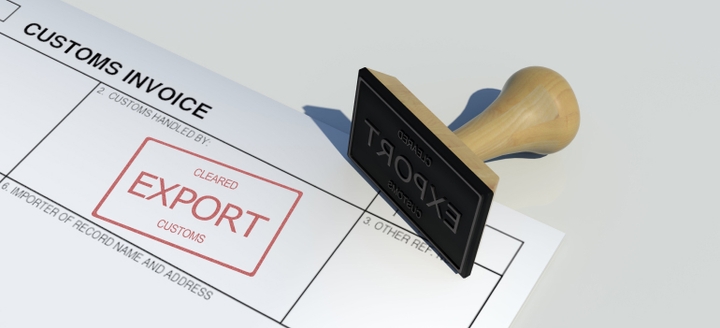
Ocean and Air Freight Shipping From Taiwan to Singapore
FCL, LCL and Air shipping comprehensive guide and instant online quote
Singapore is Taiwan's fifth-largest trade partner and fourth-largest export market, with bilateral trade amounting to $28.2 billion (USD) in 2012. The two Asian Tigers signed a free trade agreement in 2013 to strengthen their partnership further.
Nonetheless, importing from Taiwan to Singapore can be a complex undertaking for your business. On this page, we want to provide you with the necessary information so you can ship your freight from Taiwan to Singapore successfully – no matter if you choose air or ocean shipping.
What Are Your Options for Shipping Freight From Taiwan to Singapore?
You can choose between ocean and air shipping from Taiwan to Singapore. We will discuss the pros and cons of each alternative in the subsequent sections of this page.
Ocean Freight From Taiwan to Singapore
Less than Container Load (LCL): Your products travel in a shared container next to consignments belonging to other shippers. So, instead of paying to ship the full container from Taiwan to Singapore, you’ll only be charged according to the weight and dimensions of your shipment. That’s why LCL is one of the most economical ways to move small consignments.
Full Container Load (FCL): When you pay for use and transportation of a full container at a flat fee, your goods will be isolated in their own unit throughout the journey from Taiwan to Singapore. This mode of transport can be more cost-effective than LCL if you are transporting larger consignments.
Air Freight from Taiwan to Singapore
If you require your goods in Singapore urgently, then air freight will be your best bet. The quick transit and extra flexibility come at a price, though. Flying your freight is often much more expensive than sending them on a cargo ship.
How Much Does it Cost to Ship Cargo From Taiwan to Singapore?
How much your import from Taiwan to Singapore will ultimately cost depends on several factors, for instance:
- The nature of your goods
- Your preferred mode of transport (FCL, LCL, Air)
- The weight of your cargo
- The dimensions of your consignment
- The distance between origin and destination
- Your chosen service (for example Port-to-Port or Door-to-Door)
The weight of your goods greatly influences the final cost calculation. This will become clear when you consider the following: The price of shipping your freight via air or sea will be roughly the same if you are transporting 100 kg or less. However, if your consignment weighs more than 100 kg, ocean freight is usually cheaper than air shipping.
It’s also important to remember that freight forwarders like Shipa Freight don’t ship all weight brackets. Small consignments, weighing 35 kg or less, are better handled by international courier services.
How Long Does it Take to Ship Cargo From Taiwan to Singapore?
As Taiwan and Singapore are only about 3,000 kilometers apart, the transit times for ocean and air freight are not that different. With either mode of transport, your freight can arrive within a few days in Singapore.
How Long Does It Take to Ship Cargo by Sea From Taiwan to Singapore?
To give you an idea of transit time for sending a shipping container from Taiwan to Singapore, one of our routes from Kaohsiung, takes only eight days from port to port. An LCL shipment from Keelung will take about 12 days to reach the final recipient.
How Long Does It Take to Ship Cargo by Air From Taiwan to Singapore?
Air freight can take between five and eight days to travel from Taipei in Taiwan to Singapore. Even though the flight time is just a few short hours, your freight has to pass customs and security checks and needs time for unloading and offloading as well.
Customs Clearance in Taiwan and Singapore

No matter if you are transporting your freight via air or by sea, every export from Taiwan to Singapore has to pass customs clearance. As this is a crucial step in the shipping process, most businesses prefer to let experienced freight forwarders or agents handle it.
An expert can avert any problems or delays and confirm that all paperwork complies with Taiwanese and Singaporean customs laws and international regulations. You still have an important part to play in the customs clearance process, as you need to prepare and submit the required documentation. Customs authorities will likely expect at least the following paperwork:
- Commercial Invoice
- Packing List
- Certificate of Origin
- Letter of Credit or other payment terms (depends on the contract between the parties involved)
- Bill of Lading for ocean freight or Airway Bill for air freight (Shipa Freight will provide this for you)
To finalize the process, the customs officers might ask for further paperwork, such as licenses, permits, or certificates. In any case, your freight forwarder will be your advisor and guide.
Our documents list provides you with a handy overview and explanation of the different documents.
Should You Choose Ocean Freight or Air Freight?
Ocean Freight
Sea freight is the most common shipping method for transporting commercial goods from Taiwan to Singapore. Maritime carriers ship freight inside standard 20ft or 40ft shipping containers that are loaded onto specialized vessels from port to port.
Sometimes, you have to transport cargo that doesn’t fit inside a standard container. In this case, your carrier can offer alternatives, such as break-bulk shipping and a variety of specialized container types.
In the next sections, we will focus on explaining the two options for containerized ocean shipping – LCL and FCL.
Considerations for LCL Freight Shipping
Advantages:
- It’s often the least expensive shipping method for cargo with a total volume of 14 CBM or less.
- There’s no need to load and unload the container yourself. You can deliver and collect your goods from the warehouse of the carrier or freight forwarder you are working with.
- You can ship your consignments as soon as they are ready instead of waiting to fill a container. That can speed up your supply chain.
Disadvantages:
- Your products will be handled more often during the necessary consolidation and deconsolidation of the container. That may damage fragile, delicate, or perishable goods.
- These additional process steps take time which can lengthen the shipping duration in comparison to FCL.
Learn more about Less than Container Load on our dedicated page on LCL shipping.
Considerations for FCL Freight Shipping
Advantages:
- FCL is mostly the cheapest option for consignments that exceed 14 CBM (half the load capacity of a 20ft container).
- It’s usually faster than LCL.
- Your freight remains isolated in an unopened container until it arrives at the final destination, unless customs officials open it for inspection.
Disadvantages:
- FCL can narrow your options for loading and delivery. Not every supplier or buyer has the necessary equipment to handle a container at their facilities.
- No matter how small or how large your consignment is, you always have to pay a flat fee for the unit.
Learn more about Full Container Load on our dedicated page on FCL shipping.
Air Freight
Advantages:
- Air freight is best suited for high-value goods as it’s very low-risk.
- You will benefit from ultra-short transit times, ideal for perishable products with a limited shelf-life.
- It might be even more affordable than ocean freight if you are shipping just a couple of pallets or less.
- Air shipping provides you with more certainty with regard to your delivery date, as it’s less affected by the weather.
- Air freight is often favored by suppliers and buyers based close to an international airport.
Disadvantages:
- Air shipping is often very expensive for larger consignments.
- It’s not a practicable option for cargo that’s bulky or awkwardly shaped, as it won’t fit into the hold of an aircraft.
Learn more about Air Freight on our dedicated page by clicking here.
Ocean Cargo Port Guide
Cargo Ports of Origin in Taiwan
Kaohsiung
Port Facts:
- The largest port in the country, located in the south.
- New container facilities were added in 2017 to increase the capacity.
- Ideal for shippers in and near the cities of Yancheng, Lingya, Gushan, and Siaogang.
Owned By: Taiwan International Ports Corporation.
Annual Container Volume: >10.2 million TEUs.
UN/LOCODE: TWKHH.
Taichung
Port Facts:
- Second-largest port in Taiwan.
- Situated in the Wuqi District on the west coast of the island.
- Covers an area of about 3,800 hectares.
- Offers eight berths for cargo ships, which stretch over 2,377 meters.
Owned By: Taiwan International Ports Corporation.
Annual Container Volume: >1.7 million TEUs.
UN/LOCODE: TWTXG.
Keelung (Chilung)
Port Facts:
- Situated 37 km east of Taipei in the north of the country.
- Also known as Keelung Harbor.
- Serves destinations to the Matsu Islands, Xiamen, Okinawa, and Keelung Islet.
- Accessible via the Taiwan Railway network.
Owned By: Taiwan International Ports Corporation.
Annual Container Volume: >1.5 million TEUs.
UN/LOCODE: TWKEL.
Taipei
Port Facts:
- Third-busiest port for containerized goods in the country.
- Newest international port in Taiwan.
- Located in the Bali District, New Taipei.
- Has the capacity to handle four million TEUs annually.
Owned By: Taiwan International Ports Corporation.
Annual Container Volume: 1.6 million TEUs.
UN/LOCODE: TWTPE.
Cargo Port of Arrival in Singapore
Singapore
Port Facts:
- Situated on the southern tip of the Malay Peninsula.
- Ranked as the top maritime capital of the world since 2015.
- Second-busiest port globally in terms of total shipping tonnage.
- Offers 52 berths equipped with about 200 quay cranes.
Owned By: The Maritime and Port Authority of Singapore.
Annual Container Volume: >36 million TEUs.
UN/LOCODE: SGSIN.
Flying Your Freight: Airport Guide
Airports of Origin in Taiwan
Taipei
Airport Facts:
- Known as Taoyuan International Airport.
- Largest and busiest airport in the country.
- Situated 40 km west of central Taipei in Taiwan’s north.
- Eighth-busiest airport worldwide for international freight.
Singaporean Airports Served: Singapore.
***Taipei to Singapore Cargo-Only Operators:v None.
IATA CODE: TPE.
Kaohsiung
Airport Facts:
- Second-busiest airport in the country.
- Located in the Siaogang District in southern Taiwan.
- Also known as Siaogang Airport.
- Infrastructure includes two terminals and one east-west runway.
Singaporean Airports Served: None.
Kaohsiung to Singapore Cargo-Only Operators: None.
IATA CODE: KHH.
Airports of Arrival in Singapore
Singapore
Airport Facts:
- Eighth-largest cargo hub worldwide.
- One of the best global air freight facilities in the world.
- Commonly known as Changi Airport.
- Located under 20 km from Singapore’s CBD.
- Covers an area of 13 square kilometers.
Connected Airports in Taiwan: Taipei.
Taiwan to Singapore Cargo-Only Operators: None.
IATA Code: SIN.
Why Ship From Taiwan to Singapore With Shipa Freight?
The easy way to transport your commercial goods from Taiwan to Singapore is with Shipa Freight. International logistics become more straightforward and simple with our easy-to-use online platform. Viewing and managing all your imports and exports in one place can certainly simplify and accelerate your supply chain. That also means you don’t have to employ and coordinate multiple agencies anymore.
When you trust us to manage your ocean or air freight from Taiwan to Singapore, you can benefit from:
- Online quotes that are quick to obtain and compare.
- Immediate online booking to send your freight on the way fast
- A cutting-edge online portal to manage your entire shipping process in one place.
- Transparent shipping paperwork for clearing customs.
- Customs processes that are taken care of for you.
- Round-the-clock access to our friendly customer service team.
- Guaranteed compliance with all relevant rules and regulations.
Know Your Shipping Terminology
Some of the jargon and complicated terminology used by shipping experts can be confusing. To help build your understanding of the language of shipping, we’re explaining some of the confusing terms in common usage on our country-to-country pages. Two examples are below.



